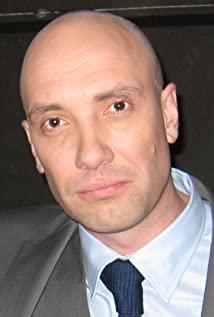For a long time, Imagine Entertainment, founded by Ron Howard, has collaborated with the National Geographic Channel on a large number of natural and humanistic documentaries. This time, they jointly broke the field of cooperation into TV series. As a director, Ron Howard has always been good at non-fiction biographical films. Under his leadership, Fantasy Entertainment participated in the production of "Apollo 13", "A Beautiful Mind", "Iron Fist", "Hoover" and "Fast Hurry", etc. Familiar documentary film. This time, Ron Howard directed the first episode as a producer of "Genius" for the sake of the National Geographic Channel.
Each season of the "Genius" series is about a character, with the first season focusing on Einstein's life. As soon as the broadcast started, the National Geographic Channel announced that it had renewed the second season, but the talent of the second season was kept secret for the time being, and it will be announced after the first season is over. The gimmicks of the next season buried the clues early, indicating that the first season being broadcast is very hot. In the story of the first episode, Einstein of Jewish descent is shrouded in the turbulent waves of Nazi ideology. What is especially shocking is that Einstein was having an affair with his secretary when his friend Walther Rathenau, the German foreign minister at the time, was assassinated. The assassination shot is switched by a newspaper to Einstein's lustful face and true love action. In the ensuing dialogue, Einstein continued to say amazingly: "Monogamy is abnormal, it is a product of the concept of religious theocracy, and being so foolish and loyal to theocracy is the biggest obstacle to the pursuit of truth." For lovers Questioning, he said frankly: "I can love Mozart and Bach at the same time, love the Alps and the Baltic Sea, why can't I love you and Elsa at the same time?". After his lover refused to live together, he also expressed helplessness: "The triangular structure is not as simple as I thought." Regardless of whether these remarks are correct or not, the mere plot and few words have revealed Einstein's chaotic private life. A big hole quickly smashed the audience's preconceived image of Einstein to a smash.
These few sentences not only give Einstein's attitude towards love and marriage, but also reflect multiple information such as his experience, hobbies, beliefs and so on. "Mozart and Bach" directly expresses Einstein's immersion in Western classical music. He began to play the violin at the age of 6 and regarded music as the only pastime. Music and physics complemented each other in Einstein's life; "The Alps and the Baltic Sea" reflected his willingness to roam in nature since he was a child. The publicity of personality, the freedom of the mind; the maddened theory of theocracy can be traced back to the year of 12 years old. Because of reading scientific books, I found the story of the "Bible" unconvincing, which led to Einstein's sudden termination of childhood in this year. belief in God. His unique free thinking is intertwined with acquired experience, especially the anti-Semitic ethos of the society at that time made him begin to doubt all authority; the triangular structure is also 12 years old, Einstein came into contact with Euclid He acquired plane geometry, and formed a simple proposition of thinking and existence due to his fascination with triangles. After adulthood, many sensibility and reason reached harmony in Einstein, music and nature, freedom and thinking finally contributed to the communication between genius and the universe.
The achievements of geniuses are absolutely dazzling, and the plot of "Genius" aims to be eye-catching. Einstein's lover secretary in "Genius" is a real person, but the time when he fell in love with the secretary in the play seems to be inconsistent with historical facts. For dramatic effect, the two of them were brought forward by a year in the play. According to Deadline Hollywood, the beautiful secretary was named Betty Neumann, the niece of a close friend of Einstein. As shown in the play, although the two had a love affair, Betty refused to really enter Einstein's life. Einstein sighed for this, "This dream in this world cannot be fulfilled, so I have to resort to the stars." Although Einstein's second wife Elsa was full of grudges at that time, the aura of a celebrity wife still made her acquiesce to the two people's sexual intercourse. However, Betty was just one of many dewy marriages for Einstein. Only from the mid-1920s until his sojourn in the United States in 1933, Einstein had ambiguous relationships with women of all kinds, including the blond Austrian beauty Margarete Lebach, the wealthy Florist Estella Katzenellenbogen and jewelry mogul widow Toni Mendel, among others. These women love to travel, love to read, and have the same passion for music as Einstein, and similar hobbies have brought them together. Some of the extant letters can attest to the existence of other, more women, and their affair with Einstein. A woman known as M appeared in a letter from Einstein's wife Elsa, who allegedly followed Einstein to England. In Einstein's letter to a friend, he also complained that Ms. M's behavior was really out of control.
The complexity of human nature seems particularly dramatic in genius. Not only Einstein, but other geniuses on the show, including Einstein's first wife, physicist Mileva Marieke, and Einstein's nemesis, Nobel Prize winner Philip von Leonard (Philipp von Lenard) is not good. The former's eccentric nature and the mysterious death of her first daughter, the latter's slander of the Roentgen rays of the first Nobel Prize, and the gnashing of teeth and hatred of Jews, have all been objectively shown in the play.
Leonard is played by Michael McElhatton, who once starred in the "Game of Thrones" "Little Skin" father "Lord Bolton". In this play, Leonard's eyes are cold and surly, which is very in line with the temperament of this Nazi physics spokesperson. Michael McElhatton's performance is absolutely brilliant.
The first season of "Genius" uses a two-line structure to describe Einstein in two stages: teenagers and middle-aged and elderly people. Played by Johnny Flynn and Geoffrey Rush. Geoffrey Rush, who won the Oscar for "Shining" (1997), plays the middle-aged version of Einstein, who is naturally in shape and spirit, and the rare teenage image of Johnny Flynn is also full of energy In line with the description of the young Einstein in the book "Einstein Biography": broad shoulders, brown skin, brown eyes, an aesthetic mouth, a slightly hooked nose, and a cheerful voice. The author of "The Biography of Einstein", Walter Isaacson (Walter Isaacson), became famous for his book "The Biography of Kissinger", and was authorized to write "Jobs Biography" by "Joe Gang Master". Before "Jobs", it was this "Einstein Biography" that made him rise to the next level in the industry. In the book, Isaacson disclosed the thousands of twists and turns before and after Einstein's success. Of particular interest are the private personalities and details of Einstein's life that seem to be unknown.
The first season of "Genius" was adapted from this biography. Regarding the authenticity of some content in the play, Ron Howard said in an interview with foreign media that he has experienced many real-life film and television adaptations and creations. Every time the process of gathering real materials for research can be called a process of receiving re-education. Most of the relevant text, picture material and video clips are submerged in history, which requires a great sense of responsibility and whole-hearted devotion to present them to the audience authentically. Regarding this drama, Ron Howard stated that although there are bound to be omissions, the producer is in a pragmatic attitude, adhering to the spiritual guidance of the original author, digging deeply, exploring carefully, and doing everything possible to restore a true love Einstein. Not only that, but this rigor will be maintained in the follow-up episodes of this "Genius" series. In a way, this is basically declaring that the "Genius" series is a series that makes people disillusioned with celebrities, and the emphasis is definitely not on the genius deeds of the geniuses in their respective fields, but on the hard work. Pull geniuses off the altar with trivial facts.
"The fashion of blindly worshipping celebrities is the trauma of spiritual slavery left by human society. Without independent thought and personality, there is worship and fashion." Walter Isaacson in "Einstein" Biography" wrote, in order to criticize people's blind obedience and glorification of celebrities, and called for a correct view of Einstein's personality diversity. "Genius" follows the teachings of righteousness and interprets the life of a genius with a plain and objective lens. Perhaps without worship and halo, people can truly understand the hardships of genius in seeking truth, and can truly understand the immortality of genius.
View more about Genius reviews











